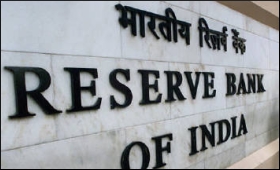|
|
|

|
India will be among fastest growing economies in 2023: RBI Governor
|
|

|
|
| Top Stories |
 |
|
|
|
IANS | 13 Jun, 2023
Reserve Bank of India (RBI) Governor Shaktikanta Das on Tuesday
expressed confidence that India will be among fastest growing economies
in the world in 2023 which would grow at the rate of 6.5 per cent in the
current fiscal.
"We expect real GDP to grow by 6.5 per
cent during 2023-24. In all likelihood, India will remain among the
fastest growing large economies in 2023," the RBI Governor said while
delivering the opening plenary address at the Summer Meetings organised
by Central Banking in London.
He said that the Indian economy
displayed "exemplary resilience" post-pandemic and rebounded strongly
from a contraction of 5.8 per cent in 2020-21 to a growth of 9.1 per
cent in 2021-22 and 7.2 per cent in 2022-23, as proactive and
coordinated response of fiscal and monetary policies nurtured a quick
recovery.
He said that various structural reforms related to
banking, digitalisation, taxation, manufacturing and labour, implemented
in the last few years, laid the foundation for strong and sustainable
growth over the medium and long term.
"The government's continued
thrust on capital expenditure is creating additional capacity and
nurturing the much-awaited revival in the corporate investment," he
said.
The Indian economy has also made rapid gains in openness
and has gradually integrated with the global economy over the years, Das
asserted.
"Consequently, it is getting increasingly exposed to
the vagaries of global headwinds. It is, however, pertinent to note that
India's growth in the last few years is mainly driven by robust
domestic demand, especially private consumption and investment, amidst
the global slowdown," he noted.
The RBI Governor further said
that being proactive and nimble footed during a crisis gives one the
agility to respond speedily to evolving developments that are
overwhelming.
"In this regard, our decisions at the height of the
coronavirus crisis in 2020 and our liquidity rebalancing measures in
2021 served us well. Second, our measures have been prudent, targeted
and calibrated to the need of the hour.
"We have not been tied
down by any existing dogma or orthodoxy. While lowering the floor of the
interest rate corridor and increasing its width, we did not inject
excessive liquidity or dilute our collateral standards. We kept in mind
that what is being rolled out needs to be rolled back in time and in a
non-disruptive manner," he said.
"Third, we backed up our
monetary policy actions by appropriate regulatory and supervisory
measures, including macro-prudential instruments, that reinforced the
policy impact and its credibility."
"Fourth, we provided
guidance and confidence to the market and the wider public through
effective communication as part of our endeavour to anchor expectations
and sentiments appropriately. Thus, communication became an additional
pillar of our overall policy response during the pandemic," Das
elaborated.
|
|
|
| |
|
|
|
|
|
|
|
|
|
|
|
|
|
|
| |
| Customs Exchange Rates |
| Currency |
Import |
Export |
US Dollar
|
84.35
|
82.60 |
UK Pound
|
106.35
|
102.90 |
Euro
|
92.50
|
89.35 |
| Japanese
Yen |
55.05 |
53.40 |
| As on 12 Oct, 2024 |
|
|
| Daily Poll |
 |
 |
| Do you think Indian businesses will be negatively affected by Trump's America First Policy? |
|
|
|
|
|
| Commented Stories |
 |
|
|
|
|
|
| |
|